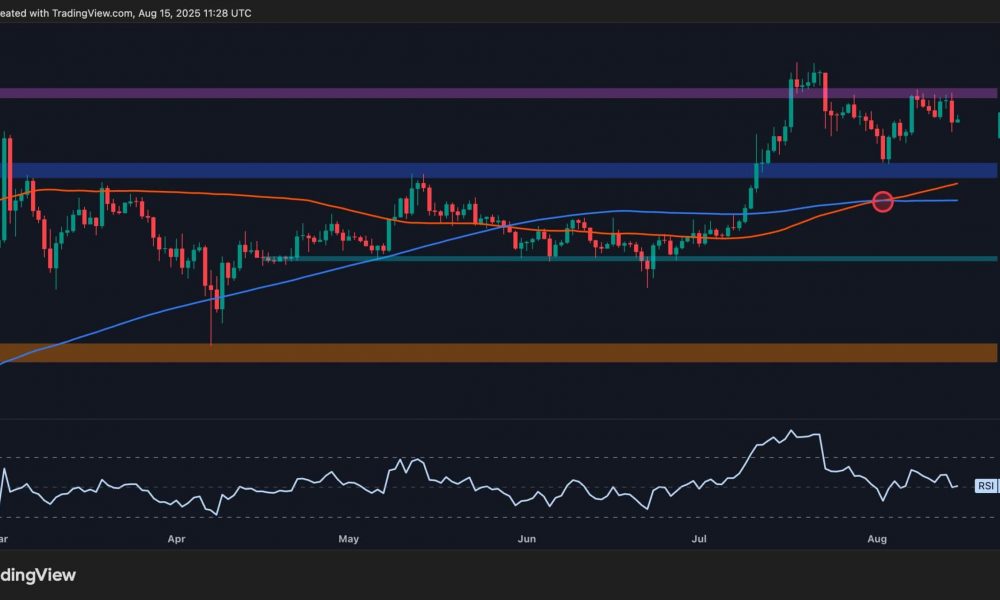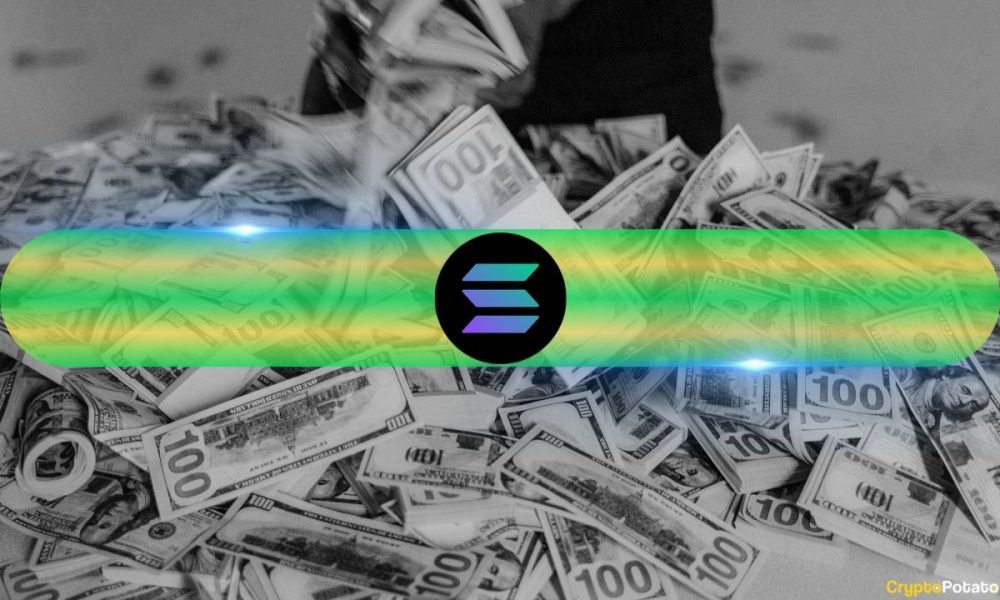LIDO STAKED ETHER Price Chart
Cryptocurrency News
MORE NEWSEthereum Foundation, Whales, and Hackers: What’s Driving the ETH Sell-Off?
TL;DR Whales, hackers, and the Ethereum Foundation wallets moved over $500M in ETH through large sales and withdrawals. Ethereum transfers rose to 4.6M ETH, nearing...
Massive DOGE Whale Activity Hints at $1 Breakout
TL;DR Whales bought two billion DOGE this week, lifting their combined holdings to 27.6 billion coins. A single 900M DOGE transfer worth $208M to Binance...
Ripple Price Analysis: XRP at Risk as Key Support Levels Could Trigger Sharp Drop
XRP has recently entered a consolidation phase after a strong rally earlier this summer, with the price action now hovering around key resistance levels on...
Solana’s $200 Comeback Is No Mere ‘Speculative Pop’ – Here’s Why
Solana (SOL) has emerged as one of the month’s top gainers, rising over 20% as optimism spreads across the crypto market. Analysts say Solana’s return...
Ethereum-based Meme Coin Pepeto Nears Stage 10, Raises Over $6.18M in Presale, as Ethereum Eyes $10,000
[PRESS RELEASE – Dubai, UAE, August 15th, 2025] Early-stage Crypto presales present a rare opportunity for investors to get in at the lowest valuations before...
Lido Staked Ether (STETH) is an ERC-20 token that provides a reward when staking ETH 2.0. It is issued by the Lido project, which allows you to count on profits in tokens of the second version of the Ether without blocking your own assets and without infrastructure support, for example, through lending.
Why opt for Lido stake?
At the core of this project is the Lido DAO, a decentralized autonomous organization that provides Ethereum liquid staking services. With Lido staking, you can prepare for the launch of Ethereum 2.0 regardless of the amount of capital available.
Lido addresses key issues with ETH 2.0 staking, including:
- low liquidity,
- low availability.
Again, with Lido ETH stake, users can participate in Ether staking with any amount of funds.
Lido Staked Ether coin (STETH) price
Lido Staked Ether (STETH) tokens, which are the “guarantor” of Ether, are minted when deposited in Lido and then burned when redeemed. The balances of these tokens are pegged to the original Ether in a ratio of 1:1. Daily balances are updated when oracles generate reports for the past day.
The STETH rate, accordingly, is always tied to the value of ETH, so that after the ETH deposit contract is unlocked, all owners can receive the corresponding amount in new Ether by liquidating STETH. Also you can see Litecoin and Shiba inu price chart.
How to stake ETH on Lido?
The user must deposit Ether into Lido smart contracts. For this action, they receive STETH (staked ETH) tokens, which reflect the user’s balance in the Beacon Chain (ETH 2.0 chain), and also entitle them to any rewards or penalties related to Beacon Chain validators.
When transactions are launched on this chain (perhaps by 2023), the Lido ETH stake participants will be able to redeem Ether along with all rewards, liquidating STETH.
Until then, STETH can be freely bought and sold on exchanges, that is, the asset is not tied specifically to the Lido stake platform.
Structural elements of Lido:
- Staking pool (protocol for managing deposits, rewards, and withdrawals). Includes oracles, withdrawal authority, rewards, and a list of node operators.
- A liquid stake Lido token representing a 1:1 balance of a user’s Ether on the Beacon Chain.
- A decentralized autonomous organization that manages protocol parameters.
To stake Lido or not to stake?
The decentralized autonomous organization Lido has attracted a lot of attention, thanks not only to its convenient opportunities for staking Ether with any capital investment but also to its unusual approach to governance.
The system has an LDO control token (Lido Staked Ether coin), which is distributed as the stakeholders themselves see fit.
Betting service providers are selected by the DAO. Users who stake ETH cannot choose which staker to send their assets to.
Currently, among the stakers are well-known companies specializing in this area of ​​activity:
- Stakefish,
- Staking Facilities,
- P2P,
- Certus,
- Chorus One.











